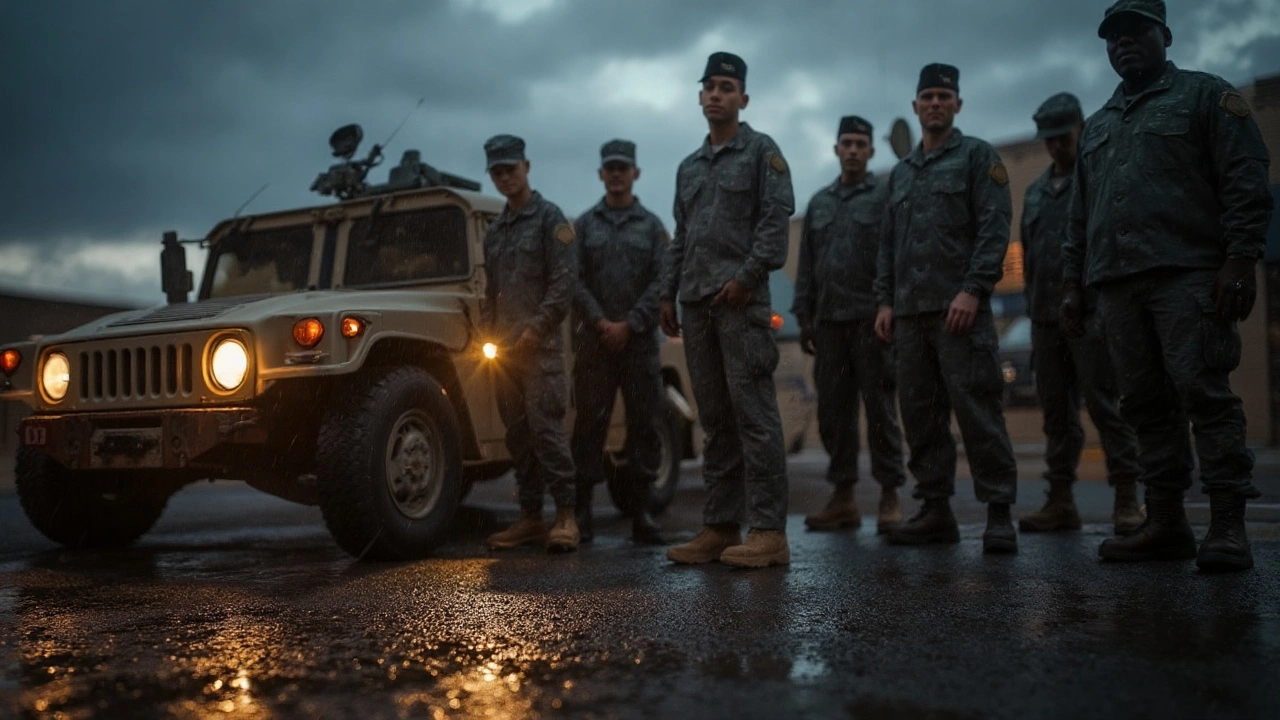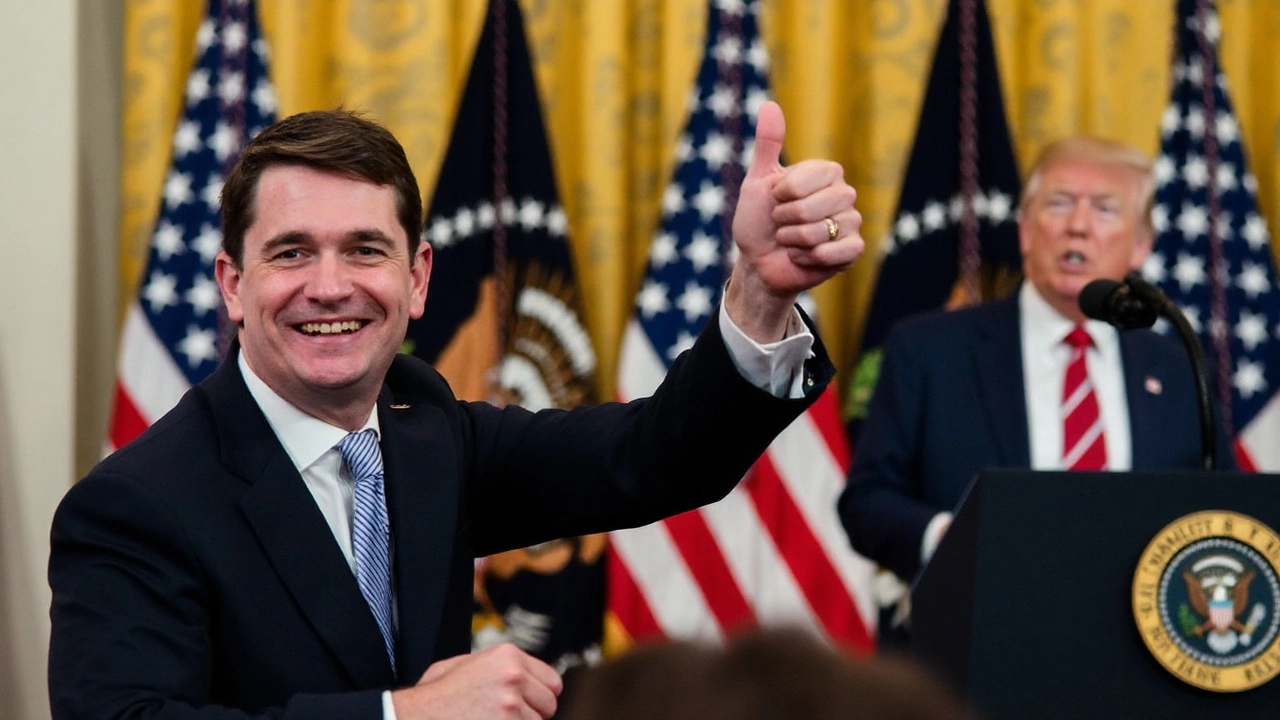A sitting president promising on live TV to send troops into a major American city isn’t routine. That’s what happened when Donald Trump said he plans to deploy the National Guard to Memphis as part of a broader push to curb violent crime. He described Memphis as “deeply troubled” and said he wants to replicate what he views as successful Guard support in Washington, D.C. Tennessee Governor Bill Lee welcomed the idea and said his office will work with the administration on the details.
What’s missing right now are the specifics: how many troops, under what authority, for how long, and with what mission. Also unclear is Senator Bill Hagerty’s role. The Fox News piece that reportedly mentions his “aisle-crossing” work isn’t available, and there’s no public breakdown of how he’s shaping this particular plan. His team has stressed bipartisan work on public safety in the past, but on Memphis, details aren’t out.
What Trump announced
On Friday, Trump said he intends to send National Guard units to Memphis to help combat crime. He framed it as a continuation of actions he’s taken elsewhere, pointing to Washington, D.C., where the National Guard operates differently because the District’s Guard falls under federal control. In Tennessee, the Guard is typically under the governor unless the president federalizes it. With Governor Lee signaling support, a cooperative deployment under state control but federally funded (often referred to as Title 32 status) is one likely path.
That distinction matters. Under most scenarios in a state, Guard members don’t function as everyday police. Their typical roles include perimeter security, traffic control, protecting critical infrastructure, and providing surge capacity. Arrest authority and investigative work generally remain with local police and sheriff’s deputies. If the Guard is federalized (Title 10), their law enforcement role is even more limited, unless the Insurrection Act is invoked—something historically rare and politically explosive.
Memphis has wrestled with stubborn violent crime and property crime surges in recent years. Car thefts and aggravated assaults spiked during the pandemic, and homicides stayed painfully high compared with pre-2020 levels. The city also endured deep trust shocks after the killing of Tyre Nichols in early 2023, which led to the disbanding of the MPD’s Scorpion unit and a broader debate over how to be tough on crime without eroding civil liberties. That makes any uniformed deployment a sensitive move, even if the intent is to stabilize hot spots.
Trump’s comparison to the capital has limits. In D.C., federal authorities and the D.C. National Guard have a more direct line to the president. In Memphis, any plan will need clear coordination among the Governor’s office, the Tennessee National Guard, Memphis Police Department, Shelby County Sheriff’s Office, and city and county leaders. That coordination will determine how visible the Guard is, whether they focus on static posts or mobile patrols, and how information flows to local investigators.

What it could look like on the ground
There are a few playbooks officials tend to use in city deployments:
- Fixed security posts: Guard members at transit hubs, hospitals, shopping districts, and event venues to free up sworn officers for patrol and investigations.
- Traffic and perimeter support: Crowd management during targeted operations, accident scenes, or high-traffic zones where visibility itself can deter crime.
- Infrastructure protection: Guarding utilities, warehouses, and government buildings so police can concentrate on violent offenders.
- Logistics and surge: Communications support, evidence transport, drone or helicopter reconnaissance (where allowed), and relief staffing during major sweeps.
Will that reduce crime? In the short term, visible presence in high-crime areas can reduce violence modestly. A 2022 review by the Council on Criminal Justice found hot-spot policing tends to cut violence at targeted locations without simply shifting it elsewhere, at least initially. But National Guard deployments are not a long-term fix. They can stabilize a situation while the city ramps up detective work, youth outreach, probation compliance, and illegal gun interdiction—efforts that actually drive sustainable reductions.
There are also guardrails to consider. Memphis leaders will need to spell out use-of-force rules, complaint mechanisms, and how Guard personnel interact with civilians and the press. After the 2020 protests nationwide, courts and watchdogs focused on accountability, documentation of stops, and the role of military-style units in civil settings. Memphis can avoid familiar pitfalls by setting tight scopes and clear metrics—think: response times in specific neighborhoods, fewer shootings around targeted blocks, and improved clearance rates for violent crimes.
Any deployment raises a few immediate questions:
- Authority and command: Will troops operate under state control (Title 32) with MPD as lead, or under a different legal status?
- Mission scope: Guarding fixed sites, or also joining patrols? Will they carry long guns or standard sidearms? Will they assist with warrant operations?
- Duration and exit criteria: 30 days? 90? What measurable goals trigger a drawdown?
- Data and transparency: Weekly public dashboards on stops, calls for service, and violent incidents near Guard posts?
- Civil liberties: Training on local policies, de-escalation, and safeguarding First Amendment activity.
Money matters, too. Even if the federal government covers much of the cost, local agencies will divert time to coordination and command posts. If the goal is to reduce shootings and carjackings, officials will want to balance Guard support with evidence-based strategies—focused deterrence meetings, group violence intervention, and better witness support to improve case closures.
Where does Senator Hagerty come in? The Fox News story reportedly mentioned “aisle-crossing” work, but without that text, there’s no clear description of what that means for Memphis. In general, senators can accelerate federal funding, push DOJ task-force resources, or streamline grants for hiring and technology. If Hagerty pursues a bipartisan track here, it could look like securing money for license-plate readers tied to strict privacy rules, recruiting bonuses for detectives, and community violence interrupter programs tied to measurable results. As of now, though, his specific role in this deployment isn’t public.
Community reaction will be split. Business owners and residents in hard-hit corridors may welcome a stronger presence that calms street crime and supports officers who’ve been stretched thin. Civil rights groups will warn about mission creep and the risks of blending military posture with day-to-day policing, especially after recent misconduct scandals. Those tensions aren’t a reason to avoid action; they’re a reason to define it tightly and report results often.
Finally, the D.C. comparison that Trump highlighted: the capital’s deployments were quick to surge and visible, but also drew sharp criticism when tactics overshadowed communication. Memphis has a chance to do this differently—clear rules, targeted presence, transparency on outcomes, and a plan to hand responsibilities back to local agencies once the surge stabilizes the hardest-hit blocks.
The next signals to watch: a formal request or agreement from the Governor’s office; the legal status of the deployment; a mission letter that spells out duties and limits; and a public briefing from MPD and the Sheriff’s Office. If this goes forward, the Memphis National Guard mission will only be as successful as its clarity, the data it reports, and the trust it earns week by week on the streets it’s meant to protect.
